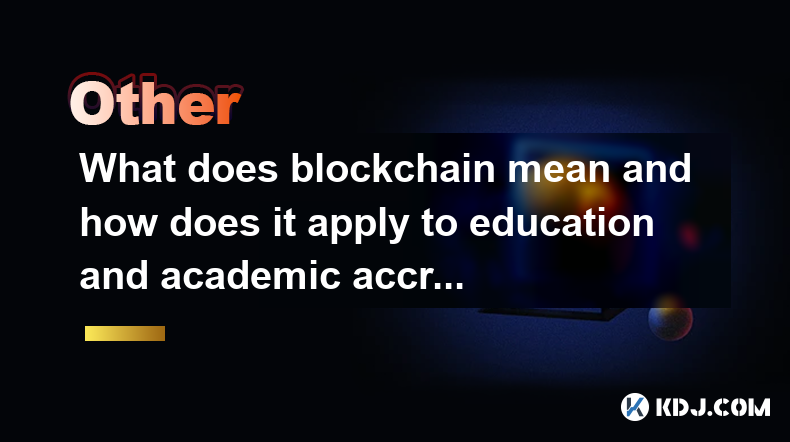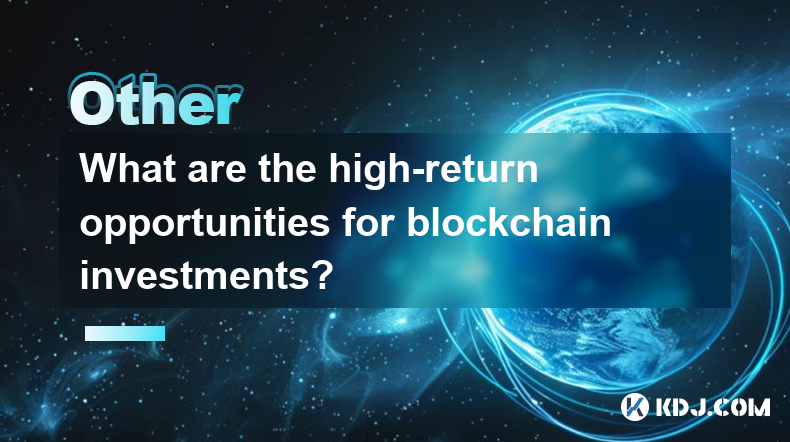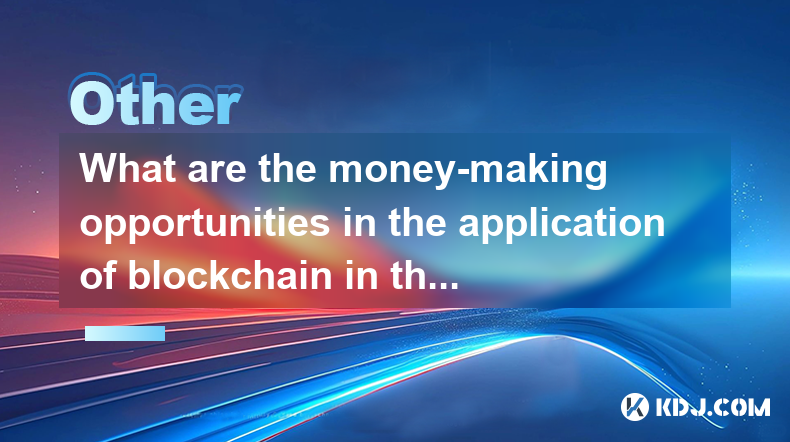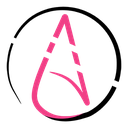-
 Bitcoin
Bitcoin $79,665.8407
3.83% -
 Ethereum
Ethereum $1,579.5478
6.55% -
 Tether USDt
Tether USDt $0.9999
0.04% -
 XRP
XRP $1.9268
9.45% -
 BNB
BNB $562.1131
4.15% -
 USDC
USDC $1.0002
0.02% -
 Solana
Solana $110.8037
11.18% -
 Dogecoin
Dogecoin $0.1541
11.55% -
 TRON
TRON $0.2347
4.27% -
 Cardano
Cardano $0.5985
9.61% -
 UNUS SED LEO
UNUS SED LEO $8.9771
0.94% -
 Toncoin
Toncoin $3.1461
5.09% -
 Chainlink
Chainlink $11.6806
9.15% -
 Avalanche
Avalanche $17.2575
11.80% -
 Stellar
Stellar $0.2326
7.01% -
 Hedera
Hedera $0.1592
16.64% -
 Sui
Sui $2.0658
13.55% -
 Shiba Inu
Shiba Inu $0.0...01130
4.10% -
 MANTRA
MANTRA $6.2950
3.42% -
 Polkadot
Polkadot $3.6486
7.49% -
 Bitcoin Cash
Bitcoin Cash $281.2295
8.60% -
 Litecoin
Litecoin $72.5734
8.16% -
 Dai
Dai $1.0002
0.03% -
 Ethena USDe
Ethena USDe $0.9991
0.06% -
 Bitget Token
Bitget Token $4.1618
6.98% -
 Hyperliquid
Hyperliquid $12.1466
18.96% -
 Pi
Pi $0.5811
5.12% -
 Monero
Monero $205.1583
5.47% -
 Uniswap
Uniswap $5.2101
6.62% -
 OKB
OKB $52.4211
5.96%
What does blockchain mean and how does it apply to education and academic accreditation?
Blockchain enhances security in educational records by distributing data across a network, making it resistant to tampering and ensuring continuous availability.
Apr 06, 2025 at 01:21 am

Blockchain technology, at its core, is a decentralized and distributed digital ledger used to record transactions across numerous computers. This ensures that the data once recorded cannot be altered retroactively without the alteration of all subsequent blocks and the consensus of the network. In the realm of cryptocurrencies, blockchain serves as the underlying technology for Bitcoin, Ethereum, and other digital currencies, enabling secure and transparent transactions.
The application of blockchain in education and academic accreditation has garnered significant interest due to its potential to enhance security, transparency, and efficiency. Educational institutions are exploring how blockchain can be used to manage and verify academic credentials securely. By storing academic records on a blockchain, the integrity of the data is maintained, reducing the risk of fraud and enabling easier verification by employers and other educational institutions.
How Blockchain Enhances Security in Educational Records
One of the primary benefits of using blockchain for educational records is the enhanced security it provides. Traditional systems often store sensitive data in centralized databases, which are vulnerable to hacking and data breaches. In contrast, blockchain distributes data across a network of computers, making it much harder for malicious actors to compromise the system. Each transaction or record added to the blockchain is encrypted and linked to the previous record, creating a secure chain of data that is resistant to tampering.
Moreover, blockchain's decentralized nature means that there is no single point of failure. If one node in the network goes down, the data remains accessible through other nodes. This resilience is particularly valuable for educational institutions, which need to ensure the continuous availability of academic records. By leveraging blockchain, schools and universities can protect the integrity of their students' records and maintain trust in their accreditation processes.
Transparency and Verification of Academic Credentials
Blockchain technology also offers significant advantages in terms of transparency and verification of academic credentials. When academic records are stored on a blockchain, they become immutable and easily verifiable. This means that employers, other educational institutions, and even students themselves can quickly and securely access and verify the authenticity of degrees, certificates, and other credentials.
The process of verifying academic credentials can be streamlined using blockchain. Instead of relying on time-consuming and often manual processes, such as contacting the issuing institution or waiting for mailed transcripts, blockchain allows for instant verification. This can be particularly beneficial in a globalized job market, where employers need to quickly and confidently verify the qualifications of potential employees from different countries.
Efficiency and Cost Savings in Academic Accreditation
Implementing blockchain in academic accreditation can also lead to significant efficiency gains and cost savings. Traditional systems for managing and verifying academic records often involve multiple intermediaries and manual processes, which can be both time-consuming and expensive. By using blockchain, educational institutions can automate many of these processes, reducing the need for intermediaries and cutting down on administrative costs.
For example, blockchain can facilitate the automatic issuance and verification of digital certificates. Once a student completes a course or program, the institution can issue a digital certificate that is stored on the blockchain. This certificate can then be easily accessed and verified by anyone with the appropriate permissions, eliminating the need for physical certificates and reducing the risk of loss or damage.
Use Cases of Blockchain in Education
Several educational institutions and organizations have already begun to explore and implement blockchain technology in various ways. Here are some notable use cases:
MIT Media Lab's Blockcerts: The Massachusetts Institute of Technology (MIT) has developed Blockcerts, an open standard for creating, issuing, viewing, and verifying blockchain-based certificates. This initiative allows students to receive digital certificates that are verifiable and secure, enhancing the credibility of their academic achievements.
Holberton School's Blockchain-Based Transcripts: Holberton School, a coding school based in San Francisco, uses blockchain to issue and manage student transcripts. This approach ensures that the transcripts are tamper-proof and easily verifiable, providing students with a secure way to showcase their skills and achievements to potential employers.
Sony Global Education's Learning Passport: Sony Global Education has developed a blockchain-based platform called the Learning Passport, which allows students to store and manage their educational records securely. This platform enables students to control their own data and share it with educational institutions and employers as needed, enhancing privacy and security.
Challenges and Considerations
While the potential benefits of blockchain in education and academic accreditation are significant, there are also several challenges and considerations that need to be addressed. One of the main challenges is the need for widespread adoption and standardization. For blockchain to be truly effective in managing academic records, it must be widely adopted by educational institutions and recognized by employers and other stakeholders.
Another consideration is the technical complexity of implementing blockchain systems. Educational institutions may need to invest in new infrastructure and training to effectively use blockchain technology. Additionally, there are concerns about data privacy and compliance with regulations such as the General Data Protection Regulation (GDPR) in the European Union. Institutions must ensure that their use of blockchain complies with these regulations and protects the privacy of their students.
Future Prospects and Innovations
Looking ahead, the future of blockchain in education and academic accreditation appears promising. As the technology continues to evolve, we can expect to see new innovations and applications that further enhance the security, transparency, and efficiency of educational systems. For instance, smart contracts, which are self-executing contracts with the terms directly written into code, could be used to automate the issuance and verification of academic credentials, further streamlining the process.
Additionally, the integration of blockchain with other emerging technologies, such as artificial intelligence (AI) and the Internet of Things (IoT), could lead to even more advanced and secure educational systems. For example, AI could be used to analyze blockchain data to identify patterns and trends in student performance, while IoT devices could be used to securely collect and store educational data in real-time.
Common Questions and Answers
Q: What is blockchain technology?
A: Blockchain technology is a decentralized and distributed digital ledger used to record transactions across numerous computers. It ensures that the data once recorded cannot be altered retroactively without the alteration of all subsequent blocks and the consensus of the network. In the cryptocurrency world, blockchain is the underlying technology for Bitcoin, Ethereum, and other digital currencies, enabling secure and transparent transactions.
Q: How does blockchain enhance security in educational records?
A: Blockchain enhances security in educational records by distributing data across a network of computers, making it much harder for malicious actors to compromise the system. Each transaction or record added to the blockchain is encrypted and linked to the previous record, creating a secure chain of data that is resistant to tampering. Additionally, blockchain's decentralized nature means there is no single point of failure, ensuring the continuous availability of academic records.
Q: How can blockchain improve the transparency and verification of academic credentials?
A: Blockchain improves the transparency and verification of academic credentials by making records immutable and easily verifiable. When academic records are stored on a blockchain, they can be quickly and securely accessed and verified by employers, other educational institutions, and students themselves. This streamlines the verification process, eliminating the need for time-consuming and manual processes.
Q: What are the potential efficiency gains and cost savings from using blockchain in academic accreditation?
A: Using blockchain in academic accreditation can lead to significant efficiency gains and cost savings by automating many processes and reducing the need for intermediaries. For example, blockchain can facilitate the automatic issuance and verification of digital certificates, eliminating the need for physical certificates and reducing administrative costs. This can streamline the management and verification of academic records, making the process more efficient and cost-effective.
Q: Can you provide examples of blockchain use cases in education?
A: Yes, several educational institutions and organizations have implemented blockchain in various ways. For instance, MIT's Blockcerts allows students to receive verifiable and secure digital certificates. Holberton School uses blockchain to issue tamper-proof and easily verifiable student transcripts. Sony Global Education's Learning Passport enables students to store and manage their educational records securely on a blockchain platform.
Q: What are the main challenges and considerations for implementing blockchain in education?
A: The main challenges and considerations for implementing blockchain in education include the need for widespread adoption and standardization, the technical complexity of implementing blockchain systems, and concerns about data privacy and compliance with regulations such as GDPR. Educational institutions must address these challenges to effectively leverage blockchain technology in managing academic records.
Q: What are the future prospects for blockchain in education and academic accreditation?
A: The future prospects for blockchain in education and academic accreditation are promising, with potential innovations such as smart contracts to automate the issuance and verification of credentials. The integration of blockchain with other technologies like AI and IoT could lead to more advanced and secure educational systems. As the technology evolves, we can expect to see new applications that further enhance the security, transparency, and efficiency of educational systems.
Disclaimer:info@kdj.com
The information provided is not trading advice. kdj.com does not assume any responsibility for any investments made based on the information provided in this article. Cryptocurrencies are highly volatile and it is highly recommended that you invest with caution after thorough research!
If you believe that the content used on this website infringes your copyright, please contact us immediately (info@kdj.com) and we will delete it promptly.
- Memecoin Market Jumps 16% In 96 Hours!
- 2025-04-08 19:30:12
- Polkastarter will host an AMA on X with Martijn Pullen, head of digital investments
- 2025-04-08 19:30:12
- Cardano (ADA) Price Approaches Key Breakout Level That Could Trigger a Breakout Toward Higher Levels
- 2025-04-08 19:25:13
- Rexas Finance (RXS) Could Outpace Cardano (ADA) by a Whopping 10x Margin in 2025
- 2025-04-08 19:25:13
- There’s a Buzz in the Crypto Market About a Low-Priced Altcoin That Could See Massive Growth by Summer
- 2025-04-08 19:20:12
- Lightchain AI Stands Out as a Major Candidate to Replace Solana
- 2025-04-08 19:20:12
Related knowledge

Is the ranking of Chinese blockchain apps real and reliable?
Apr 04,2025 at 09:01pm
The ranking of Chinese blockchain apps has become a topic of interest for many in the cryptocurrency community, as it provides insights into the popularity and adoption of blockchain technology within China. However, the reliability and authenticity of these rankings are often questioned. This article aims to delve into the factors that influence these ...

What are the future development trends of blockchain game development?
Apr 03,2025 at 05:00am
Blockchain technology has revolutionized various industries, and gaming is no exception. As we look to the future, several trends are set to shape the development of blockchain games. These trends not only promise to enhance the gaming experience but also to integrate blockchain technology more seamlessly into the gaming ecosystem. Let's explore these t...

What are the high-return opportunities for blockchain investments?
Apr 05,2025 at 02:35pm
Blockchain technology has revolutionized the financial world, offering numerous high-return investment opportunities. These opportunities span various sectors within the cryptocurrency ecosystem, including cryptocurrencies, decentralized finance (DeFi), non-fungible tokens (NFTs), and blockchain startups. Each of these areas presents unique risks and re...

What are the maintenance costs of blockchain system development?
Apr 03,2025 at 06:07pm
The maintenance costs of blockchain system development are multifaceted and depend on various factors. These costs can include technical maintenance, security updates, infrastructure expenses, and personnel costs. Understanding these elements is crucial for anyone planning to develop or maintain a blockchain system. Technical MaintenanceTechnical mainte...

What are the money-making models of blockchain games?
Apr 04,2025 at 02:00pm
Blockchain games have emerged as a revolutionary way for players to earn real money while enjoying their favorite pastime. These games leverage the power of blockchain technology to create unique money-making models that benefit both the players and the developers. In this article, we will explore the various money-making models of blockchain games and ...

What are the money-making opportunities in the application of blockchain in the field of Internet of Things?
Apr 05,2025 at 10:35pm
The integration of blockchain technology with the Internet of Things (IoT) presents numerous money-making opportunities. Blockchain, with its decentralized and secure nature, can revolutionize how IoT devices interact, manage data, and conduct transactions. This article will explore various avenues where entrepreneurs, developers, and investors can capi...

Is the ranking of Chinese blockchain apps real and reliable?
Apr 04,2025 at 09:01pm
The ranking of Chinese blockchain apps has become a topic of interest for many in the cryptocurrency community, as it provides insights into the popularity and adoption of blockchain technology within China. However, the reliability and authenticity of these rankings are often questioned. This article aims to delve into the factors that influence these ...

What are the future development trends of blockchain game development?
Apr 03,2025 at 05:00am
Blockchain technology has revolutionized various industries, and gaming is no exception. As we look to the future, several trends are set to shape the development of blockchain games. These trends not only promise to enhance the gaming experience but also to integrate blockchain technology more seamlessly into the gaming ecosystem. Let's explore these t...

What are the high-return opportunities for blockchain investments?
Apr 05,2025 at 02:35pm
Blockchain technology has revolutionized the financial world, offering numerous high-return investment opportunities. These opportunities span various sectors within the cryptocurrency ecosystem, including cryptocurrencies, decentralized finance (DeFi), non-fungible tokens (NFTs), and blockchain startups. Each of these areas presents unique risks and re...

What are the maintenance costs of blockchain system development?
Apr 03,2025 at 06:07pm
The maintenance costs of blockchain system development are multifaceted and depend on various factors. These costs can include technical maintenance, security updates, infrastructure expenses, and personnel costs. Understanding these elements is crucial for anyone planning to develop or maintain a blockchain system. Technical MaintenanceTechnical mainte...

What are the money-making models of blockchain games?
Apr 04,2025 at 02:00pm
Blockchain games have emerged as a revolutionary way for players to earn real money while enjoying their favorite pastime. These games leverage the power of blockchain technology to create unique money-making models that benefit both the players and the developers. In this article, we will explore the various money-making models of blockchain games and ...

What are the money-making opportunities in the application of blockchain in the field of Internet of Things?
Apr 05,2025 at 10:35pm
The integration of blockchain technology with the Internet of Things (IoT) presents numerous money-making opportunities. Blockchain, with its decentralized and secure nature, can revolutionize how IoT devices interact, manage data, and conduct transactions. This article will explore various avenues where entrepreneurs, developers, and investors can capi...
See all articles






















































































